Ditapis dengan

The Universal declaration of human rights in the 21st century
The Global Citizenship Commission was convened, under the leadership of former British Prime Minister Gordon Brown and the auspices of NYU’s Global Institute for Advanced Study, to re-examine the spirit and stirring words of The Universal Declaration of Human Rights. The result – this volume – offers a 21st-century commentary on the original document, furthering the work of human rights a…
- Edisi
- -
- ISBN/ISSN
- 9781783742219
- Deskripsi Fisik
- x, 136 p.;22 cm.
- Judul Seri
- -
- No. Panggil
- 323 UNI u
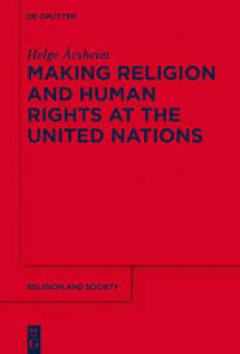
Making religion and human rights at the United Nations
The series Religion and Society (RS) contributes to the exploration of religions as social systems– both in Western and non-Western societies; in particular, it examines religions in their differentiation from, and intersection with, other cultural systems, such as art, economy, law and politics. Due attention is given to paradigmatic case or comparative studies that exhibit a clear theoretic…
- Edisi
- -
- ISBN/ISSN
- 9783110478068
- Deskripsi Fisik
- vii, 316 pages ; 24 cm.
- Judul Seri
- -
- No. Panggil
- 201.7 ARS m
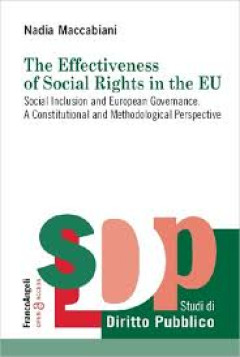
The Effectiveness of social rights in the EU:social inclussion and European G…
"Increasing inequalities, social exclusion and poverty within the EU (although at a different scale between States) prove that the effectiveness of social rights falls behind their formal entitlements and their judicial enforceability. Beyond the classical way followed by legal studies in dealing with the issue, the focus would shift to experimental ways better able to cope with the current mul…
- Edisi
- -
- ISBN/ISSN
- 9788891767561
- Deskripsi Fisik
- 191p.
- Judul Seri
- -
- No. Panggil
- 323.3 MAC e

Animal rights activism:a moral sociological perspective on social movements
We’re in an era of ever increasing attention to animal rights, and activism around the issue is growing more widespread and prominent. In this volume, Kerstin Jacobsson and Jonas Lindblom use the animal rights movement in Sweden to offer the first analysis of social movements through the lens of Emile Durkheim’s sociology of morality. By positing social movements as essentially a moral phen…
- Edisi
- -
- ISBN/ISSN
- 9789089647641
- Deskripsi Fisik
- 145p.: ill.
- Judul Seri
- -
- No. Panggil
- 303.484 JAC a

Culture, citizenship and human rights
"In Cultures, Citizenship and Human Rights the combined analytical efforts of the fields of human rights law, conflict studies, anthropology, history, media studies, gender studies, and critical race and postcolonial studies raise a comprehensive understanding of the discursive and visual mediation of migration and manifestations of belonging and citizenship. More insight into the convergen…
- Edisi
- -
- ISBN/ISSN
- 9780429198588
- Deskripsi Fisik
- 1 online resource
- Judul Seri
- -
- No. Panggil
- 323.6 BUI c

Protecting the rights of people with autism in the fields of education and em…
European Law; Human Rights; International and Comparative Education; Private International Law, International & Foreign Law, Comparative Law; Law and Psychology
- Edisi
- -
- ISBN/ISSN
- 9783319137919
- Deskripsi Fisik
- IX, 197 p.
- Judul Seri
- -
- No. Panggil
- 346.40138 DEL p

The Philosophy of Human Rights:Contemporary Controversies
The notion of "human rights" is widely used in political and moral debates. The core idea, that all human beings have some inalienable basic rights, is appealing and has an important practical function: It allows moral criticism of various wrongs and calls for action in order to prevent them. The articles in this collection take up a tension between the wide political use of human rights claims…
- Edisi
- -
- ISBN/ISSN
- 9783110263886
- Deskripsi Fisik
- -
- Judul Seri
- -
- No. Panggil
- 323.01 ERN t

Archives and human right
Why and how can records serve as evidence of human rights violations, in particular crimes against humanity, and help the fight against impunity? Archives and Human Rights shows the close relationship between archives and human rights and discusses the emergence, at the international level, of the principles of the right to truth, justice and reparation. Through a historical overview and topica…
- Edisi
- -
- ISBN/ISSN
- 9780429054624
- Deskripsi Fisik
- xx, 330p.:
- Judul Seri
- -
- No. Panggil
- 027 ARC a

Childhood Cultures in Transformation :30 Years of the UN Convention on the Ri…
This book investigates and uncover paradoxes and ambivalences that are actualised when seeking to make the right choices in the best interests of the child. The 1989 United Nations Convention on the Rights of the Child established a milestone for the 20th century. Many of these ideas still stand, but time calls for new reflections, empirical descriptions and knowledge as provided in this book. …
- Edisi
- -
- ISBN/ISSN
- 9789004445666
- Deskripsi Fisik
- 297p. ; ill.
- Judul Seri
- -
- No. Panggil
- 323.352 ELI c
Monitoring state compliance with the UN convention on the rights of the child…
This open access book presents a discussion on human rights-based attributes for each article pertinent to the substantive rights of children, as defined in the United Nations Convention on the Rights of the Child (UNCRC). It provides the reader with a unique and clear overview of the scope and core content of the articles, together with an analysis of the latest jurisprudence of the UN Committ…
- Edisi
- -
- ISBN/ISSN
- 9783030846473
- Deskripsi Fisik
- xii, 431 p.
- Judul Seri
- -
- No. Panggil
- 320 VAG m
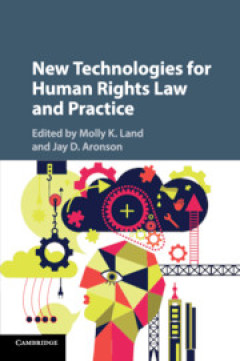
New technologies for human rights law and practice
New technological innovations offer significant opportunities to promote and protect human rights. At the same time, they also pose undeniable risks. In some areas, they may even be changing what we mean by human rights. The fact that new technologies are often privately controlled raises further questions about accountability and transparency and the role of human rights in regulating these ac…
- Edisi
- -
- ISBN/ISSN
- 9781316838952
- Deskripsi Fisik
- xiv, 334 p. ; ill
- Judul Seri
- -
- No. Panggil
- 342.085 LAN n
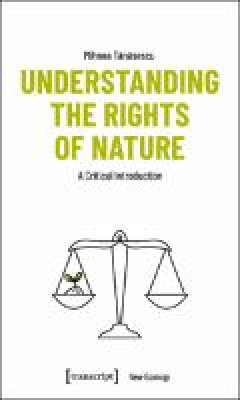
Understanding the Rights of Nature :A Critical Introduction
Rivers, landscapes, whole territories: these are the latest entities environmental activists have fought hard to include in the relentless expansion of rights in our world. But what does it mean for a landscape to have rights? Why would anyone want to create such rights, and to what end? Is it a good idea, and does it come with risks? This book presents the logic behind giving nature rights and…
- Edisi
- -
- ISBN/ISSN
- 9783837654318
- Deskripsi Fisik
- 168 p.
- Judul Seri
- -
- No. Panggil
- 300 TAN u

Embodied Narratives:Protecting Identity Interests through Ethical Governance …
Increasing quantities of information about our health, bodies, and biological relationships are being generated by health technologies, research, and surveillance. This escalation presents challenges to us all when it comes to deciding how to manage this information and what should be disclosed to the very people it describes. This book establishes the ethical imperative to take seriously the p…
- Edisi
- -
- ISBN/ISSN
- 9781108652599
- Deskripsi Fisik
- xiv, 316p: ill,
- Judul Seri
- -
- No. Panggil
- 610 EMI e

Amnesty international and women's rights:feminist strategies, leadership comm…
Amnesty International's (AI) focus on civil and political rights has marked their work with a gender bias from the outset. In the first comprehensive look at AI's work on women's rights, Miriam Ganzfried illustrates the development of their activities regarding women's rights issues over twenty years. Through interviews with staff members and activists and unprecedented access to archive materi…
- Edisi
- -
- ISBN/ISSN
- 9783839460085
- Deskripsi Fisik
- 320 p.
- Judul Seri
- -
- No. Panggil
- 305.42 MIR a

Good health, quality education, sustainable communities, human rights :the sc…
The publication collects the contributions presented during the International Symposium of the Italian UNESCO Chairs (CONIUS) entitled Human Rights and Sustainable Development Goals 2030, which took place on 16 November 2018 at the University of Florence. The contributions of national and international experts address the Global Aims for Sustainable Development of the UNESCO including Sustainab…
- Edisi
- -
- ISBN/ISSN
- 9788864538969
- Deskripsi Fisik
- 292p. : ill.
- Judul Seri
- -
- No. Panggil
- 338.927 GOO g
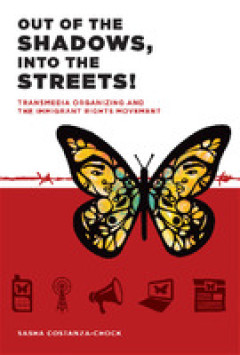
Out of the shadows, into the streets! :transmedia organizing and the immigran…
An exploration of social movement media practices in an increasingly complex media ecology, through richly detailed cases of immigrant rights activism.For decades, social movements have vied for attention from the mainstream mass media—newspapers, radio, and television. Today, many argue that social media power social movements, from the Egyptian revolution to Occupy Wall Street. Yet, as Sash…
- Edisi
- -
- ISBN/ISSN
- 9780262028202
- Deskripsi Fisik
- xv, 273 p. : ill.
- Judul Seri
- -
- No. Panggil
- 323.329120973 COS o
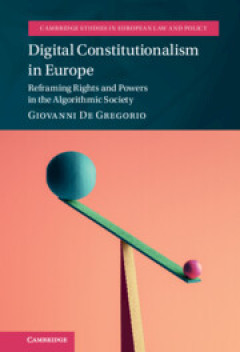
Digital constitutionalism in Europe :reframing rights and powers in the algor…
This book is about rights and powers in the digital age. It is an attempt to reframe the role of constitutional democracies in the algorithmic society. By focusing on the European constitutional framework as a lodestar, this book examines the rise and consolidation of digital constitutionalism as a reaction to digital capitalism. The primary goal is to examine how European digital constitutiona…
- Edisi
- -
- ISBN/ISSN
- 9781009071215
- Deskripsi Fisik
- xv, 355p.
- Judul Seri
- -
- No. Panggil
- 342.4085 DEG d

Translating human rights in education :the influence of Article 24 UN CRPD in…
The 2006 United Nations Convention on the Rights of Persons with Disabilities (UN CRPD) is the first human rights treaty to explicitly acknowledge the right to education for persons with disabilities. In order to realize this right, the convention’s Article 24 mandates state parties to ensure inclusive education systems that overcome outright exclusion as well as segregation in special educat…
- Edisi
- -
- ISBN/ISSN
- 9780472902705
- Deskripsi Fisik
- xv, 206p.
- Judul Seri
- -
- No. Panggil
- 371.909669 TRA b

Women and the UN :a new history of women's international human rights
This book provides a critical history of influential women in the United Nations and seeks to inspire empowerment with role models from bygone eras. The women whose voices this book presents helped shape UN conventions, declarations, and policies with relevance to the international human rights of women throughout the world today. From the founding of the UN and the Latin American feminist move…
- Edisi
- -
- ISBN/ISSN
- 9781003036708
- Deskripsi Fisik
- xviii, 200 p.
- Judul Seri
- -
- No. Panggil
- 323.34 WOM R
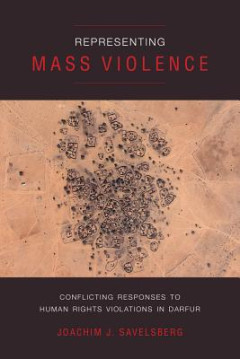
Representing Mass Violence :Conflicting Responses to Human Rights Violations …
How do interventions by the UN Security Council and the International Criminal Court influence representations of mass violence? What images arise instead from the humanitarianism and diplomacy fields? How are these competing perspectives communicated to the public via mass media? Zooming in on the case of Darfur, Joachim J. Savelsberg analyzes more than three thousand news reports and opinion …
- Edisi
- -
- ISBN/ISSN
- 9780520963085
- Deskripsi Fisik
- xix, 341 p.
- Judul Seri
- -
- No. Panggil
- 962.4043
 Karya Umum
Karya Umum  Filsafat
Filsafat  Agama
Agama  Ilmu-ilmu Sosial
Ilmu-ilmu Sosial  Bahasa
Bahasa  Ilmu-ilmu Murni
Ilmu-ilmu Murni  Ilmu-ilmu Terapan
Ilmu-ilmu Terapan  Kesenian, Hiburan, dan Olahraga
Kesenian, Hiburan, dan Olahraga  Kesusastraan
Kesusastraan  Geografi dan Sejarah
Geografi dan Sejarah